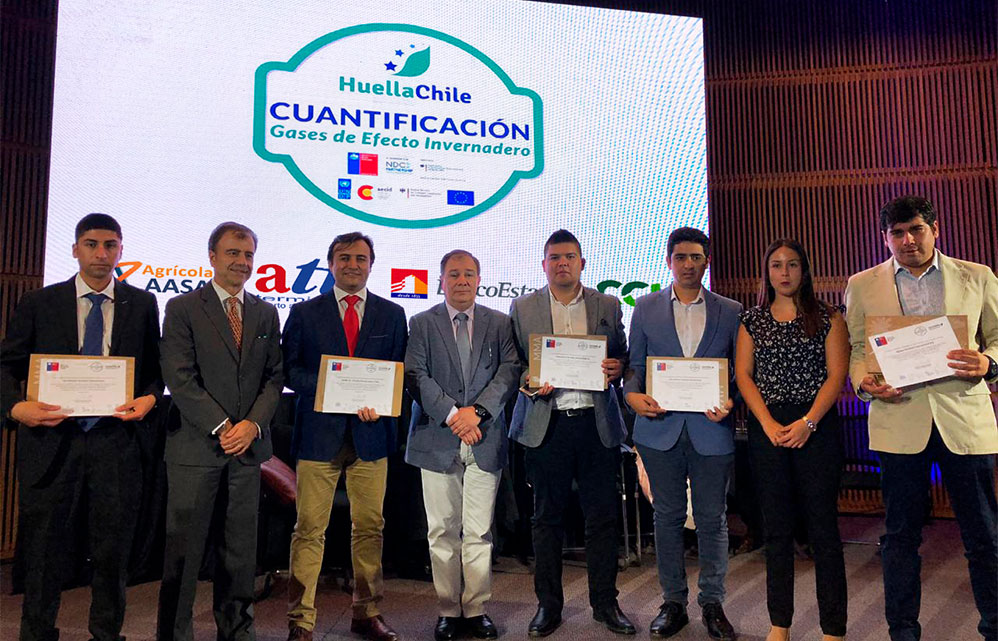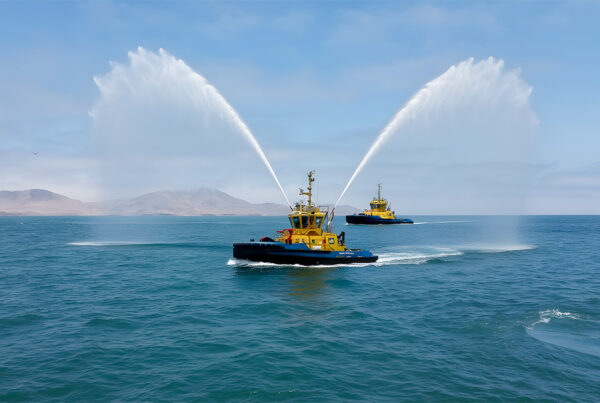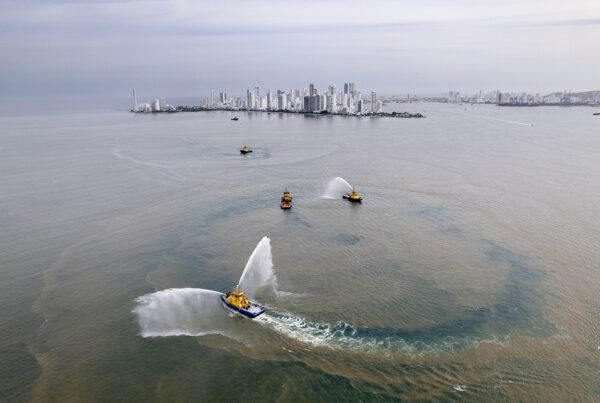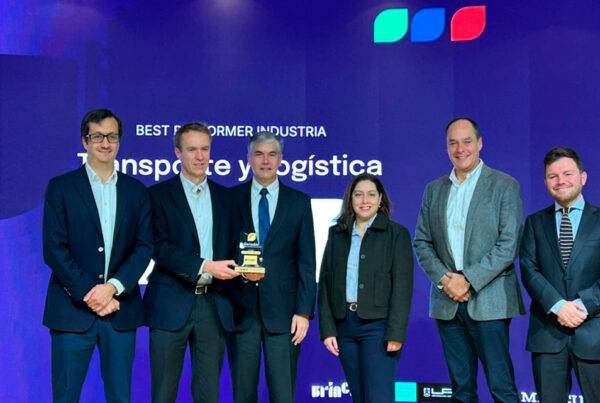
The ports of Antofagasta, Iquique, San Antonio and San Vicente verified their greenhouse gas emissions. Remolcadores Chile stands out as industry pioneers in carbon footprint measurement.
Santiago, November 23rd. The terminals operated by SAAM in Iquique, Antofagasta, San Antonio and San Vicente, and RAM Chile were recognized by Huella Chile among several companies that measure and verify their corporate greenhouse gas (GHG) emissions.
“Measuring our carbon footprint makes us aware of the effect our operations have on the environment and is the first step in developing actions that help us more efficiently use resources and control our emissions,” commented Enrique Brito, Managing Director of the Port Terminals Division.
He also specified that CO2 emissions are generated at the ports by cargo and container movements and that each terminal has implemented diverse measures to more sustainably manage these aspects.
- Antofagasta Terminal Internacional (ATI) has made investments to upgrade its terminal lighting systems and improve the unloading process using newer, more energy efficient technology.
- Iquique Terminal Internacional (ITI) has cut vessel waiting times thanks to improvements in operational performance, thereby reducing emissions by one kilo of CO2 per ton transferred between 2015 and 2017. The terminal constantly strives to continuously improve its production equipment.
- At San Antonio Terminal Internacional (STI), ongoing analysis of the use of space has led to a drop in container rehandling moves, which makes for more efficient use of equipment, thereby decreasing fuel consumption and CO2 emissions.
RAM Chile is a Pioneer
SAAM’s Towage Division recorded an important milestone for the industry in Chile by measuring and verifying its corporate GHG emissions for its domestic operations. It is the first company in its industry to reach this goal.
“In our case, more than 80% of emissions are from tug engines and generators. After completing this process, our task now is to generate a baseline for emissions and develop plans to optimize energy consumption in order to reduce our footprint,” commented Cristian Cifuentes, Division Manager of RAM Chile.
“Through actions like these, we hope to continue building a culture of environmental care, where all our employees can contribute their ideas to make our operations more sustainable,” he added.
The executive confirmed that “the challenge was not easy since we had no local benchmarks. Today we have our own methodology for quantifying tug emissions that can be used as a guide for our peers.”
The whole emissions quantification process for the terminals and RAM Chile is backed by the American Bureau of Shipping (ABS), an internationally renowned certifier for the shipping sector.
HuellaChile awarded the certifications at a ceremony presided over by the Minister of the Environment, Carolina Schmidt, which included around 100 public and private-sector institutions.





